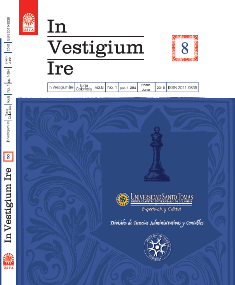LÍMITES LEGALES Y JURISPRUDENCIALES DE ACCESO A LA PENSIÓN GRACIA DE LOS DOCENTES NACIONALES
Main Article Content
Abstract
Raises on the panorama the pension of grace created in his moment by the Law 114 of 1913 in favour of official primary educators that were fulfilling with a minimum of twenty (20) years service and fifty (50) of age, and that for mandate of this law was compatible with the ordinary pension of retirement of departmental character.By later laws this presentation was extended to the employees and teachers of normal and inspectors of instruction (Law 116 of 1928), and also it was allowed complete the years of service in establishments of secondary education (Law 37 of 1993)By effect of these laws the above-mentioned pension was extended to educators of the national order, in spite of which, in the more recent years interpretive problems were generated on having doubted on if it turns out feasible that the teachers lately above-mentioned were receiving the pension grace in addition to the ordinary pension of national character to which they have right. In his moment, this problem solved with the approval of the Law 91 of 1989, which stopped to except the right of the educators linked before December 31, 1980. Nevertheless, with posteriority, has been supported the incompatibility of these two pensions, interpretation that came to be prevalente in the subsequent years.
Article Details
How to Cite
Lizarazo-Martínez, P. Y. (2016). LÍMITES LEGALES Y JURISPRUDENCIALES DE ACCESO A LA PENSIÓN GRACIA DE LOS DOCENTES NACIONALES. In Vestigium Ire, 8(1), 232-247. Retrieved from http://revistas.ustatunja.edu.co/index.php/ivestigium/article/view/1011
Issue
Section
In Vestigium Ire Vol. 8
Investigium Ire of http://revistas.ustatunja.edu.co/index.php/ivestigium is licensed under a Creative Commons Attribution-NonComecial-NoDerivatives 4.0 International (CC BY-NCND 4.0)
References
Andrew, S. (2006). Libro Verde sobre el Sistema Privado de Pensiones. España: Actualidad Internacional.
Crabbe, C. (2006). Reformas de Pensiones: Buenas y Malas. Revista del Banco Interamericano de Desarrollo.
García de Enterría, E., & Ramón Fernández, T. (1993). Curso de Derecho Administrativo. Madrid: Civitas.
Guastini, R. (S.A). Antinomias y Lagunas. España: Universidad de Géniva.
H.W.R, W. (1971). Derecho Administrativo. Madrid: Estudios Políticos de Madrid.
Laserna, J. M., & Gómez, C. (2009). Pensiones y Portafolios: La Construcción de una Política Pública. Bogotá: Banco de la República.
Marienhof, M. (1993). Tratado de Derecho Administrativo, t. II. Argentina: Editorial Abeledo Perrot.
Ravier, A. (2013). Contribución del Sistema Privado de Pensiones al Desarrollo Económico de Latinoamérica. Experiencias de Colombia, México, Chile y Perú. Chile: SURA Asset Management.
Riveró, J. (1984). Derecho Administrativo. Venezuela: Instituto de Derecho Público, Facultad de Ciencias Jurídicas y Políticas.
Ruezga, A. (2005). El Nuevo Derecho de las Pensiones en América Latina. México: Centro Interamericano de Estudios de Seguridad Social.
Crabbe, C. (2006). Reformas de Pensiones: Buenas y Malas. Revista del Banco Interamericano de Desarrollo.
García de Enterría, E., & Ramón Fernández, T. (1993). Curso de Derecho Administrativo. Madrid: Civitas.
Guastini, R. (S.A). Antinomias y Lagunas. España: Universidad de Géniva.
H.W.R, W. (1971). Derecho Administrativo. Madrid: Estudios Políticos de Madrid.
Laserna, J. M., & Gómez, C. (2009). Pensiones y Portafolios: La Construcción de una Política Pública. Bogotá: Banco de la República.
Marienhof, M. (1993). Tratado de Derecho Administrativo, t. II. Argentina: Editorial Abeledo Perrot.
Ravier, A. (2013). Contribución del Sistema Privado de Pensiones al Desarrollo Económico de Latinoamérica. Experiencias de Colombia, México, Chile y Perú. Chile: SURA Asset Management.
Riveró, J. (1984). Derecho Administrativo. Venezuela: Instituto de Derecho Público, Facultad de Ciencias Jurídicas y Políticas.
Ruezga, A. (2005). El Nuevo Derecho de las Pensiones en América Latina. México: Centro Interamericano de Estudios de Seguridad Social.


